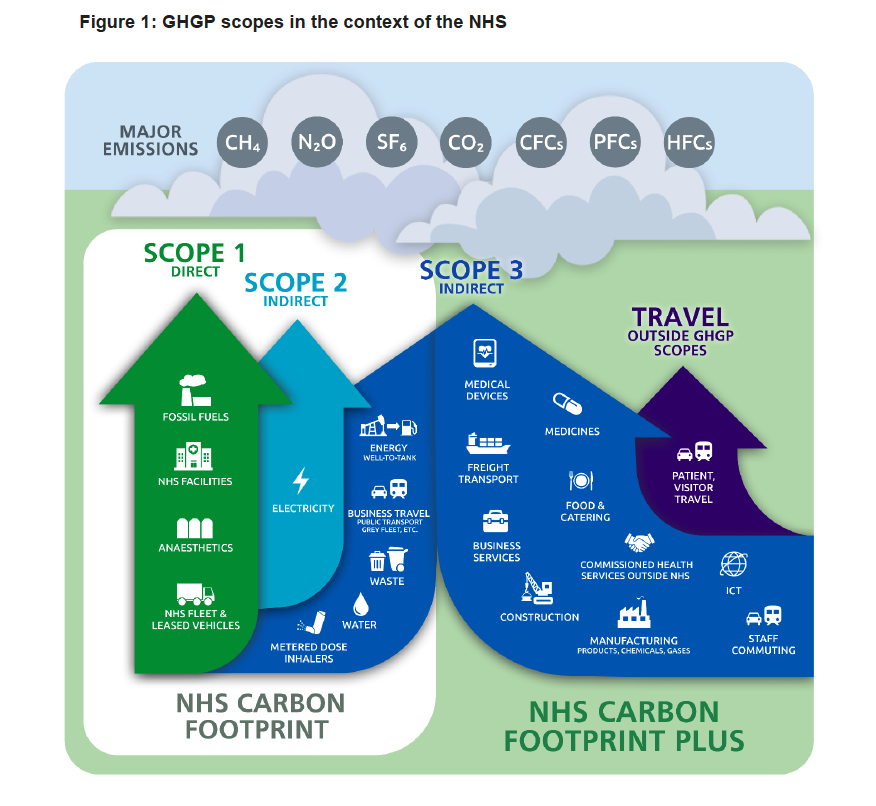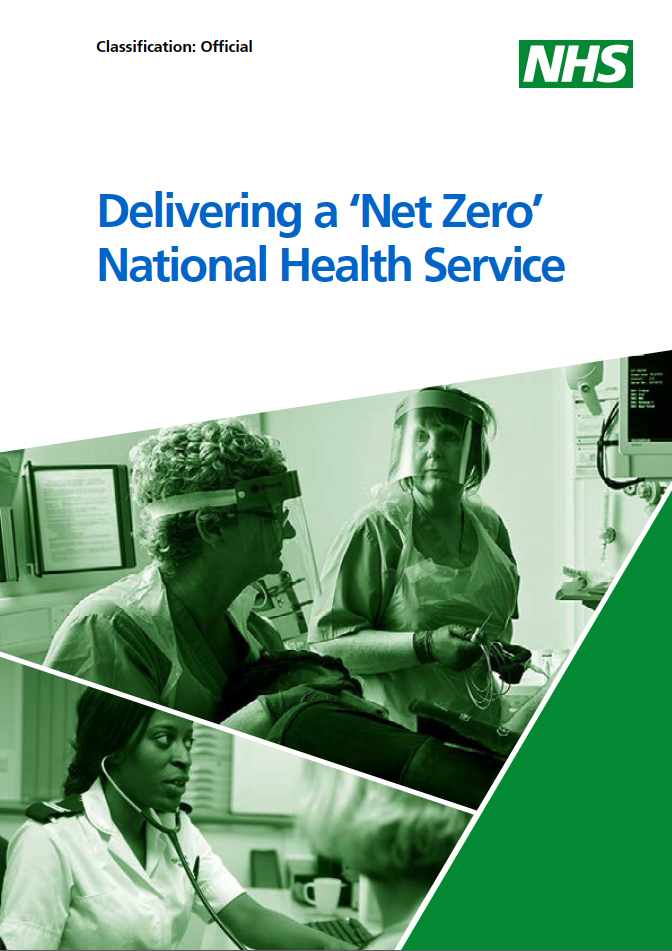England’s National Health Service (NHS) has become the first health system in the world to make a commitment to achieving net-zero emissions. On October 1 they released a brand new report that not only outlines the direction, scale and pace of change, but also provides a detailed account of the NHS’ modelling and analytics underpinning the latest NHS carbon footprint and the interventions required to achieve the net-zero ambition.
Set against a 1990 baseline,* the NHS has set two clear and feasible targets for their net zero commitment:
- The NHS Carbon Footprint (emissions they control directly), will be net zero by 2040, with ambition to reach an 80% reduction from 2028-2032
- The NHS Carbon Footprint Plus (emissions they can influence), will be net zero by 2045, with ambition to reach an 80% reduction from 2036-2039
*The Climate Change Act (2008) set national targets for the reduction of carbon emissions in England against a 1990 baseline.
The methods used to calculate these footprints remain the most comprehensive and sophisticated of any health system to date. The footprint measurement goes beyond just Scopes 1, 2, & 3 as laid out in the Greenhouse Gas Protocol (GHGP) – the NHS Carbon Footprint Plus will also cover emissions from patient and visitor travel to and from NHS services and medicines used within the home.

[P. 11, Delivering a ‘Net Zero’ National Health Service, NHS England 2020]
This practical, evidence-based route map to net-zero follows the NHS’ campaign launch in January 2020: For a Greener NHS and is informed by a public call for evidence answered by over 600 healthcare professionals, NGOs, and experts in support of a net-zero commitment.
Today’s announcement is both exciting and groundbreaking. NHS England should be commended on its vision and leadership in committing to become the first net zero-emission health system in the world. This now sets the standard for other health systems to follow across Europe, and throughout the rest of the world, and we look forward to supporting our members and colleagues within the NHS to make this happen.
Will Clark, Executive Director – Health Care Without Harm Europe
The NHS has already made considerable progress reducing emissions – with the NHS Carbon Footprint Plus delivering a 26% reduction by 2020 compared to the 1990 baseline. Significant challenges remain ahead, however, to close the gap and reach net zero the NHS will need to remove 6.1 MtCO2e from the NHS Carbon Footprint and 24.9 MtCO2e from the NHS Carbon Footprint Plus – put into perspective, the NHS will need to reduce emissions equivalent to the national footprint of Croatia.
We are delighted by the NHS net zero announcement today and congratulate all those who have helped to make this possible. It highlights how a health system can drive carbon reductions whilst delivering quality of care and leading the way for a healthy future for all.
Sonia Roschnik, International Climate Policy Director – HCWH Global,
Former Director – Sustainable Development Unit of NHS England

As outlined in the report, Delivering a ‘Net Zero’ National Health Service, every area of the NHS will need to act if net zero is to be achieved – the NHS Constitution will therefore be updated, making the response to climate change a key responsibility for all staff, and every NHS organisation will assign a board-level net zero lead to support this.
Leveraging their purchasing power, NHS England will work with suppliers to reduce their Scope 2 & 3 emissions included in The NHS Carbon Footprint Plus. The health system will also support the construction of 40 new innovative ‘net zero hospitals’ with a new Net Zero Carbon Hospital Standard. By 2032, the NHS fleet will have moved to zero emission vehicles, and they will be road-testing the world’s first zero-emission ambulances by 2022.
It is both impressive and important that NHS England is considering the whole spectrum of carbon emissions, including the climate footprint from consumption and production. Not only does this set a standard for others to follow, but it also pushes manufacturers and suppliers to innovate low carbon production and products – creating a new climate-friendly market that other healthcare systems can benefit from.
Charlotta Brask, Chair – European Healthcare Climate Council
Unchecked, climate change disrupts the delivery of care, tests the resilience of the healthcare sector, and impacts the health of all society – patients, public, and healthcare workers. Poor environmental health contributes to major diseases, including cardiac problems, asthma, and cancers; in line with it’s unique healing mission, the NHS is stepping up and getting its own house in order in pursuit of its mandate to do no harm.
The right response is […] not to duck or defer action on these longer-term challenges even as we continue to respond to immediate pressures. It is to confront them head on. One of the most significant is the climate emergency, which is also a health emergency.
Sir Simon Stevens, Chief Executive – NHS England
[P. 3, Delivering a ‘Net Zero’ National Health Service, NHS England 2020]

